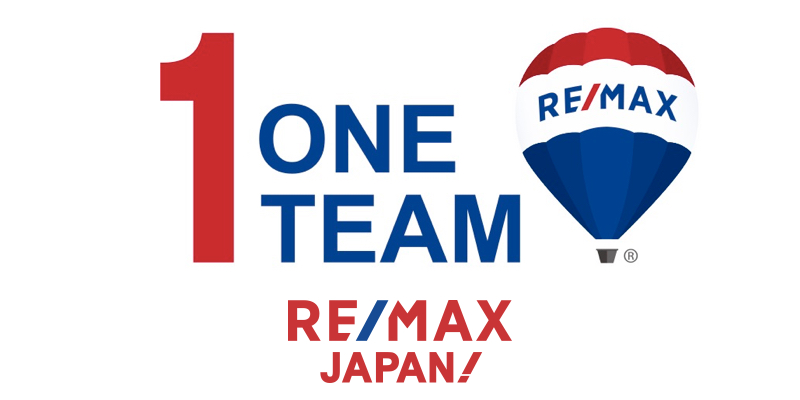THURSDAY, MARCH 05, 2020
I hope you all enjoyed the first installment of “A Non-Japanese Real Estate Agent in Japan.” If you missed it click here for Part 1. Initially I thought this series would be two parts, Part 1 being the Challenges, and Part 2 the Opportunities. With any challenge there are opportunities at hand as well.
As I went through the story board for Part 2, some of the talking points could be its own post. So allow me to be even more Japanese (lol) and give you all at least four parts. Again as I story board Part 3 and Part 4, other ideas might come up to build on this series, or a new series might come to be. Personally I am hoping for the

Last week I wrote about the challenges involved in the real estate industry as a non-Japanese real estate agent. Some of the challenges are tough, but with those challenges there are opportunities such as:
1.Language Growth
2.Cultural Differences
3.Perception

As I mentioned last week, the "Language Barrier" was one of my challenges which I had to overcome. In the initial and currently stages, yes it may be a challenge but looking on the flip side there are opportunities for growth.
1.Real Language Development and Communication
2.Building Self-Discipline
3.Helping Locals
The reason I say real language development is because as you learn new words and phrases (input) you need practice or output. With anything, communication is extremely important to reach a goal as a collective. I say collective here and not individual because in real estate we work with people, either it be a buyer or seller, landlord or tenant, or even another agent or agency, the communication between the parties need to be inline with everyones goal.
Now how does the language barrier challenge become an opportunity?
I believe you tend to communicate better because there are times when you don’t understand what is being said, so you have to double check and ask the correct meaning. Not knowing how to explain certain concepts through words, you learn other ways to communicate what you want to say. Typically for me, I simplify everything. Using simple words, gestures, and examples when my thought isn’t communicated thoroughly, or when I don’t know the correct word to use. Majority of the people I work with, aren’t extremely familiar with the process in a real estate transaction, or the terminology. Simplifying the process is beneficial to our clients where they need to know and understand as well as us the agents do.
How does overcoming the challenge of language barriers build self-discipline?
Not being able to communicate what you want or share how you think can be extremely frustrating. Then again not understanding what is being said or shared can also be frustrating. Not showing this frustration, your emotions which are viewed in the negative light builds self-discipline. Understanding okay I don’t know what is being said but asking the right questions to gain understanding. The flip side which I mentioned above, simplify to better communicate your thoughts and ideas.
In the end, you value patiences, perseverance, and knowing when to speed up or slow down. Emotions are important but knowing how to control your emotions builds self-discipline.
There is a Japanese phrase I like, 怒らず、恨まず、焦らず、腐らず、諦めず。Directly translated, Be patient, Don’t get angry, Don’t hold grudges, Be Patient, Don’t give up.
This isn’t necessarily a challenge to an opportunity, but more so a story I would like to share with everyone.
On my Instagram Story a month or so ago, I jokingly posted, “Not really sure why but Japanese people always seem to ask me for directions. This happens at least once a week.”
Once a week might be an exaggeration since I don’t keep count, but I do get asked quite frequently. I asked my wife if she ever gets asked for directions and her answer is “no.” I mean being in the real estate industry I do have a good sense of getting around Osaka City, but you can’t tell by just looking at a person. I like to say I have a friendly aura lol.
The frequent questions I get asked are how to get to a certain station or building. If I didn’t have the ability to speak Japanese, and also the ability to simplify communication, I wouldn’t be able to help these people get to where they need to be, sometimes the place they are already at is the place they need to get to. Simplicity is the key to giving directions.
It feels good to help people in need of assistance even if the assistance is minor. It is also really neat as someone who doesn’t look Japanese to the locals, Japanese people will come up to me to ask for directions even with other Japanese people in the area.

Just like languages barriers, there are a ton of opportunities for growth from the challenges which arise in Cultural Differences.
1.Appreciation of the Culture
2.A better Appreciation of your own Culture(s)
3.Building Self-Discipline
I was always taught from my parents to learn from everyone and everything. Having cultural diversity broadens your outlook on the world. Once you understand the “why” certain things are the way they are, you will have a better understanding, In this case the people you work with. Naturally when you understand, you are more open to new and different ideas allowing appreciation to fall in naturally. Creating “comfort” for your colleagues and clients will open the door to new opportunities.
Not only will you have a greater relationship with your colleagues and clients because of the appreciation you have for their culture, but through sharing your norms in your culture(s) will give you a better appreciation of your own.
For some, living in a foreign country allows for you to have a greater appreciation for your home country. This is the same with your own culture as well. We as humans tend to compare “things” to what we are familiar with, for example the cultural norms in our home country. The opportunity to learn from a foreign culture will not only broaden your outlook, but will also heighten the appreciation of your own culture. Learning from both the good and the bad, while keeping an open mind is key.
Having the opportunity to share the cultural norms in your own culture or cultures you grew up in creates cultural diversity, which in my opinion diversity is a must in a ever expanding world (globalization). Teaching or sharing a different perspective, and having your colleagues or clients respect (appreciate) the differences will create a healthy relationship. Cultural Diversity can inspire creativity and drive innovation through positive discussion and dialogue. Win-win situation.
How is this an opportunity?
I am in a position where I have the opportunity to learn and share cultural differences, mindsets, etc. Working with my colleagues who are predominately Japanese, my clients are a nice mix of Japanese and non-Japanese, I have the unique opportunity to share as well as learn from the unfamiliar.
Just like I mentioned above with language development, overcoming the challenges of learning a new culture, the different processes, and understanding the norms will build on self discipline. You want to understand and vice versa, you want others to understand, but frustration comes into play sometimes maybe even anger. Controlling those emotions through patiences and perseverance builds character. Having those emotions in check can open your mind to the “other side” or argument.
I am still learning to do this. There are times where I get upset very quickly on what was said or what was done. When I realize I might have jumped the gun, I will take a step back and process what had occurred.
Think before acting, think before speaking.

Alone, It might be impossible to change the narrative on how people are perceived. It is the same to say, alone, it might be impossible to change the narrative on how people perceive an industry.
"A dream you dream alone is only a dream, a dream you dream together is a reality."
How can the negative perception of people or an industry become an opportunity?
1.Changing the Perception
2.Building Self-Discipline
Does the perception need to change for foreign nationals living in Japan? Sure? Like I mentioned last week, I will do my part to change these negative perceptions; through discussion and positive dialogue. Speaking up when I feel or know when something is wrong. Negativity trumps anything positive, you can do 100 good things but people will only remember the bad. If this is the mindset, then creating more positive experiences so people can remember the good.
As a RE/MAX Agent, I believe we are in a unique position to change the perception of the real estate industry as a whole in Japan. I spoke about it here briefly and in general terms on the perception of the real estate industry in Japan, and also what we are doing to change the perception.
Changing the narrative or changing the perception on anything is not an overnight process. Either it be the perception on how non-Japanese folks are viewed or on how the real estate industry in japan is viewed.
“Anything worthwhile takes time to build. If we had immediate success we wouldn’t build the character we need to sustain true success.”
I have been with RE/MAX in Japan for 4 years now, just after RE/MAX Japan started business operations back in December 2014, and RE/MAX Osaka May 2015. When I first got into the real estate industry and RE/MAX I wrote about RE/MAX in Japan on October 16, 2016. Unfortunately, the post is not online anymore since my old personal website is offline. I am still able to access the “contents” which were online, so let me share some excerpts.
Excerpts from my October 2016 post:
“With RE/MAX being such a new presence and brand in Japan, it has been a challenge to gain consumer confidence (that will change here shortly). Most people just look at me with a puzzled look when I give them my business card or when I mention RE/MAX.”
Nowadays people are more familiar with our brand, brand awareness is growing, people are more aware that RE/MAX equals real estate.
“I feel it is a great opportunity for anyone who joins a company at the beginning, especially for myself. There will obviously be some challenges on the front end, but adjusting strategies, business development, and overall work ethic with some luck can turn for the better on the back end.”
I have had the opportunity to see and observe the many changes RE/MAX has gone through in Japan since 2016. I would say I am a curious person, who is curious to see the changes in the upcoming years.

I am sure there are other opportunities out here in Japan for us non-Japanese real estate agents which I haven't mentioned or thought of. Understanding that on the other side of a challenge, there is an opportunity. I wanted part 2 to reflect the talking points in part 1.
To summarize everything, character building (Building Self-Discipline) was mentioned a ton. The theme for part 2 is building self-discipline through the many opportunities presented to us. Through adversity our true colors are shown. How can we build and grow from our experiences and the opportunities placed in front of us. Part 3 will focus more in detail on Growth (Character Building) with my personal experiences.
Anyone who wants to share or discuss his or her own, I am open to being contacted. My profile has my email and phone number just click on my face above.
For convenience sake, I will share my contact info here as well.
Email: michael.bennett@remax-agt.net
Part 3 will be posted next week, March 12th. Turn on your push notifications!